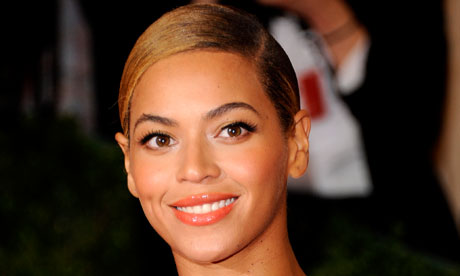
In a recent interview with the Hollywood Reporter, the legendary entertainer and long-time political activist Harry Belafonte spoke frankly and courageously about the current state of injustice and inequality in the world. His comments included a lament that has sparked some debate:
"I think that one of the great abuses of this modern time is that we should have had such high-profile artists, powerful celebrities. But they have turned their back on social responsibility. That goes for Jay-Z and Beyoncé for example. Give me Bruce Springsteen and now you're talking. I really think he is black."
Is this a fair assessment of the current state of black celebrity? It is undeniable that today's top black artists and celebrities have the greatest leverage, power, visibility and global influence of any period. It is also true that few speak openly, regularly and publicly on behalf of social justice. Most remain remarkably quiet about the conditions that the majority of black people face.
This is not to discount their philanthropic efforts. Often, celebrities take on non-controversial issues and or simply use their celebrity indirectly as a fundraising tool. But the kind of actions for which Belafonte, James Baldwin and others were known – marching with civil rights protesters under threat of death by citizen or police violence – is rare among modern superstars. Doing fundraisers is important, but unless it's a very controversial issue, that kind of giving is not terribly sacrificial; it's a feel-good decision for some and for others it's a cost of doing business. The current state of affairs calls for more visible courage than this.
Black unemployment has recently been at what some call depression-era levels of around 18%. The drop-out rates for young black people are staggering and have lifelong effects. Although black people make up around 12% of the population, they make up over 40% of those incarcerated in prisons. Poverty levels have risen across the board, but in the black community it is catastrophic: 40% of black children are born into poverty today, a number that rivals the poverty rate of the pre-civil rights victories of the 1960s.
How can so many high-profile artists have so little to say about all this?
Belafonte's lament illuminates a fundamental shift in black popular culture. As black artists have gone mainstream, their traditional role has shifted. No longer the presumed cultural voice of the black collective social justice, it is now heavily embedded in mass cultural products controlled by the biggest conglomerates in the world.
Even relatively tepid statements have to be managed and walked back. In the aftermath of Katrina, Kanye West said on national television during a fundraising telathon that George W Bush didn't care about black people. Any close examination of the government's post-Katrina response to black New Orleans or the impact of Bush policies and alliances on black America generally would give credence to this view. But West was challenged to and then compelled to apologise. Why, and to what end?
Some blame the artists for being sell-outs, while others blame the corporations for leaving artists little choice but to ply their trade in this terrain and keep quiet. It's the price of the ticket to be successful at the highest levels. So, perhaps in exchange for not talking openly about the danger of what Belafonte called "unbridled capitalism", highly rewarded artists are given prime access to corporate-controlled culture markets. Either way, the balance of power has shifted toward artistic success being determined by market success. And, many artists and fans have internalised the frightening collapse of the two.
There are important exceptions to this trend. Rapper Lupe Fiasco calling Obama a baby killer and terrorist for ordering drone attacks that kill innocent people is a rare and risky one. It would be exhilarating to see the likes of Will Smith, Tyler Perry, Oprah Winfrey and others at that level of celebrity power marching against police stop and frisk policies and the high levels of incarceration of black youth in the prison industrial complex.
In the history of black culture, popular music and art has played an extraordinary role in keeping the spirit alive under duress, challenging discrimination and writing the soundtrack to freedom movements. Visionary artists such as Harry Belafonte, Paul Robeson, Lorraine Hansberry and Nina Simone were shaped by, and contributed to this tradition, not least because much of their celebrity derived from community support not challenged through corporate marketing strategy.
The current expansion of the cultural arm of predatory capitalism threatens the power and vitality of this tradition by limiting visible spaces, audience appetite and celebrity influence of those who speak truth to power and sing the songs of justice.

